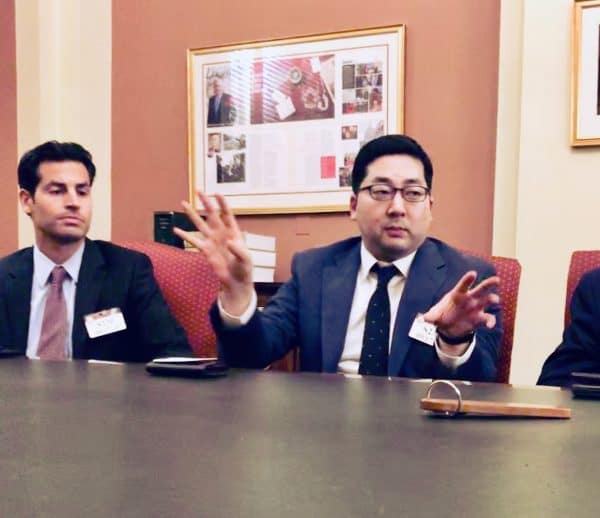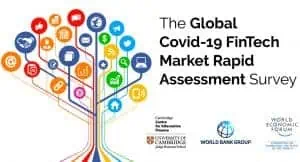
NextSeed is a securities crowdfunding platform that launched as a bank replacement – SME lending service operating under Reg CF. Over time, NextSeed has evolved offering additional services as well as facilitating capital under all three crowdfunding exemptions – Reg D 506c, Reg A+ as well as Reg CF.
In 2019, NextSeed became a broker-dealer as it sought to provide additional services as it moved beyond small business loans. Earlier this year, NextSeed added real estate securities as an option for entities in need of property development capital.
Founded by CEO Youngro Lee, NextSeed merged with Collaboration Capital in 2019 in a move to create a leading “technology-driven impact investment firm open to everyone.” In effect, the NextSeed merger with Collaboration creates a Fintech forward digital investment platform providing access to capital and access to opportunity for a broad-based investor base.
Lee is co-founder and Chairman of the Association of Online Investment Platform (AOIP) and was selected to participate in the Securities and Exchange Commission’s Small Business Capital Formation Advisory Committee, thus he is a key voice in the development of online capital formation and the regulatory environment these Fintechs must operate under.
As part of the Cambridge Centre for Alternative Finance‘s series of articles discussing Fintech during the COVID-19 health crisis, Crowdfund Insider spoke with Lee to hear about his perspective. Our conversation is below.
NextSeed is now a broker-dealer and recently merged with an RIA firm. You are still doing Reg CF offerings, alongside Reg D/Reg A+. What else has changed?
Youngro Lee: The primary business for our broker-dealer unit continues to be facilitating online capital raises for private companies, whether via Reg CF/A/D on a standalone basis or via parallel offerings. We have historically focused on small business debt offerings and will continue to do so as we strongly believe in the resilience and the opportunities in the small business ecosystem, despite what is happening right now across the country as a result of the COVID pandemic.
We are also starting to work more on larger offerings by partnering with more institutional-grade sponsors and established businesses with a proven track record, utilizing different types of securities across the capital stack. As a broker-dealer, we have significantly more regulatory obligations and diligence requirements that we have to follow versus when we were only operating as a Funding Portal, but being a BD also provides us more flexibility on how we can work with our clients (both issuers and investors) so we are trying to do so in a more thoughtful way.
We believe investors ultimately need to have consistent success investing online in these smaller private companies (whether debt or equity) in order for this industry to scale @Nextseed
Overall, we continue to take a long-term view on how the investment industry will evolve once this idea of everyday investors directly investing in small businesses becomes more commonly accepted by the mainstream investment community. The individuals participating in online offerings today are still extremely early adopters and are presumably willing to assume more risks by voluntarily participating in a nascent industry. Eventually, more serious and professional investors, including asset managers and RIAs, will inevitably want to invest in this unique asset class, but for them to do so, they will need to feel confident in the quality of investment opportunities and investment structures they have access to.
We believe investors ultimately need to have consistent success investing online in these smaller private companies (whether debt or equity) in order for this industry to scale, so we’re thinking a lot about how we can help achieve such.

We have heard from some platforms that after an initial pause, issuers have done well in raising money via online capital formation platforms. How has NextSeed been performing during the health crisis?
Youngro Lee: Different types of businesses have been impacted in a different way by the COVID pandemic, but the main street small business community has no doubt suffered dramatically almost everywhere in the US.
Any business that required customers to physically visit in person to purchase goods or services is naturally in a far worse financial situation than tech companies or other types of businesses that can operate remotely and can conduct sales digitally. In this context, almost every local business I know has had to pivot, adjust, and do everything humanly possible to be able to get through this crisis, which unfortunately shows no immediate end in sight.
Many businesses have shifted their capital-raising strategies from a growth capital mindset into more of a working capital and security mindset because they are unclear when things will get back to “normal.”
Nevertheless, to the extent certain businesses have determined a thoughtful course of action to navigate this period and are then presenting their capital plans to their community for support, online platforms are proving to be the ideal vehicle in which businesses can raise the capital they need. Businesses that have launched their campaign during these past few months on NextSeed have been quite successful, but I would credit that more to the quality of the entrepreneurs and the businesses they represent, rather than a general market dynamic.
Businesses that have launched their campaign during these past few months on @NextSeed have been quite successful, but I would credit that more to the quality of the entrepreneurs and the businesses they represent
Simultaneously, while online investment platforms have been faring well, venture capital appears to have slipped. Why is that? COVID-19 has fueled digital transformation across the Fintech sector. How do you see COVID impacting online investment platforms?
Youngro Lee: Traditional financial investment firms and institutional capital think and operate very differently than individual retail investors – based on what I’ve been seeing, many institutional investors are either hesitant to deploy capital in this uncertain environment, or else are looking to do so only at extremely favorable terms.
In contrast, many individual investors likely identify personally and directly with the small businesses and startups that are raising capital online, and their investment rationale is often more than about just trying to make money or take advantage of an unfortunate situation.
Only time will tell what impact this COVID pandemic will have ultimately had on the capital-raising industry long-term, but it’s already clear that online investment platforms are proving itself as a viable source of capital for small businesses and startups, while traditional sources of capital are putting up more barriers.
Only time will tell what impact this COVID pandemic will have ultimately had on the capital-raising industry long-term, but it’s already clear that online investment platforms are proving itself as a viable source of capital @NextSeed

Not only are you the founder/CEO of NextSeed but you are also founding Chairman of the AOIP. How has that experience influenced your thinking?
Youngro Lee: It is very difficult for a nascent industry to mature and become accepted by the mainstream audience – this challenge is heightened when we’re talking about the financial services and investment industry which is so firmly established and led by entrenched constituents, whether it be the financial institutions, traditional investors, or their respective regulators.
The AOIP is still very small and limited in what we can reasonably accomplish under these circumstances; however, we all have to start somewhere, so we’re trying our best to move the industry forward. Over the past year, we have been focused on trying to provide constructive feedback and dialogue to legislators and regulators, as we truly believe that with just a few thoughtful changes to the existing regulatory regime, so many more businesses and investors will be able to benefit.
we truly believe that with just a few thoughtful changes to the existing regulatory regime, so many more businesses and investors will be able to benefit @NextSeed
You are a member of the SEC’s Small Business Capital Formation Advisory Committee helping to guide policy based on your real-world experience. What changes do you anticipate will be made during the exempt offering review? What are you hoping for?
Youngro Lee: The SEC has been very engaged in trying to improve the current capital formation system to increase access to small businesses while protecting investor interests, and members of the SEC Small Business Capital Formation Advisory Committee have been working extremely hard to provide thoughtful feedback to the SEC in this matter. There is of course never going to be a perfect solution in this process and there will always be disagreements on the effectiveness of any specific provisions.
Nevertheless, I believe that whatever changes will be made will be positive changes for the US economy because it will help more small businesses and startups access private capital, and enable more investors to participate in the private capital markets.
My personal hope is that if certain policy/value judgments need to be made during the rule-making process, legislators and regulators err on the side of enabling more innovation and increasing access to more market participants because more innovation is truly the only way our communities and our nation can recover from the current COVID-related devastation and get back on a growth trajectory.
What are your thoughts as to how online investment platforms can help smaller firms during and after the Coronavirus?
Youngro Lee: I think all online investment platforms, regardless of the industry they operate in or the typical client base they serve, should continue what they are doing in terms of trying to provide the best service to companies looking to raise capital, as well as great investment opportunities to investors.
Ultimately every financial services business is about establishing trust and credibility, and if more people feel comfortable with investing in private companies via online investment platforms, the more this industry will grow for the benefit of everyone.
The COVID pandemic has fundamentally changed how people live and interact with each other on a day-to-day basis, which in turn will also fundamentally change how business will be conducted in the future.
In response, I believe online investment platforms can become even more innovative and effective in how we serve our communities, but there is no one roadmap or solution on how or what any firm should do.
In my opinion, what is most important during these difficult times is to simply recognize that there is incredible suffering occurring all around us, and it is up to all of us to do whatever we can to try to help each other get through it all.
every financial services business is about establishing trust and credibility, and if more people feel comfortable with investing in private companies via online investment platforms, the more this industry will grow for the benefit of everyone @NextSeed
 This interview is part of an ongoing series looking at the evolution of the Fintech industry with particular reference to the changing landscape in light of Covid-19.
This interview is part of an ongoing series looking at the evolution of the Fintech industry with particular reference to the changing landscape in light of Covid-19.
The series has been initiated in support of The Global Covid-19 Fintech Rapid Assessment Survey being carried out by the Cambridge Centre for Alternative Finance at the University of Cambridge Judge Business School, in partnership with the World Bank and the World Economic Forum. The empirical data collected will be used to understand the pandemic’s impact on the FinTech markets, how the global Fintech industry has responded and some of the immediate regulatory and policy implications. Crowdfund Insider is proud to be a research partner for the survey.

